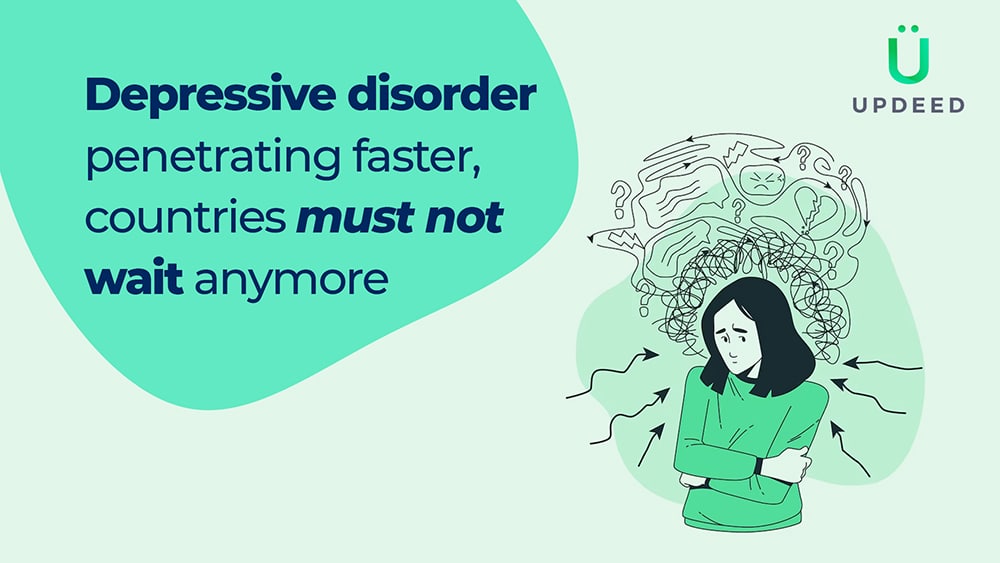Depressive disorders penetrating faster, countries must not wait anymore
Depression is a common mental disorder that affects people of all ages, genders, and cultures. It is characterised by sadness, hopelessness, and a loss of interest in once enjoyable activities. While depression has always been a problem, it is becoming increasingly prevalent worldwide, and countries must act now to address this growing crisis.
Depression is now the leading cause of disability worldwide, with more than 264 million people affected. The World Health Organization (WHO) reports that depression is on the rise, with a 20% increase in cases between 2005 and 2015.

Also, depression affects around 3.8% of the population, including 5% of adults (with 4% men and 6% women) and 5.7% of adults aged 60 or older. Globally, about 280 million people suffer from depression.
The COVID-19 pandemic has further exacerbated this trend, with the stress and uncertainty of the pandemic contributing to a rise in depression and other mental health disorders.
Has consequence
Depression has significant consequences for individuals, families, and societies. It can impair a person’s ability to function at work or school, negatively impact their relationships, and increase the risk of substance abuse, suicide, and other health problems. In addition, depression can result in significant economic costs, including lost productivity and increased healthcare spending.
Countries must not wait any longer to address the growing problem of depression. There are several steps that governments and healthcare systems can take to help prevent and treat depression.
Firstly, it is crucial to increase awareness about depression and reduce mental health stigma. Many people with depression do not seek help because they fear being judged or discriminated against. Governments and healthcare systems can work together to educate the public about the signs and symptoms of depression and the importance of seeking treatment. This can be done through public health campaigns, school programs, and media outreach.
Secondly, governments must invest in mental health services and resources. This includes funding for mental health clinics, hiring more mental health professionals, and expanding access to affordable mental health care. Many people with depression do not receive the care they need due to a lack of resources or access to care. Governments can play a crucial role in ensuring everyone can access the care they need.
Thirdly, it is important to address the social and environmental factors that contribute to depression. Poverty, unemployment, social isolation, and exposure to violence or trauma are all risk factors for depression. Governments can work to address these underlying factors by investing in social welfare programs, creating job opportunities, and promoting community engagement and social support.
Finally, it is important to continue researching depression and developing new treatments and interventions. While effective treatments are available for depression, they do not work for everyone. Governments and healthcare systems can support research into new therapies and medications that may be more effective for certain individuals or groups.
To conclude
Depression is a growing problem that is affecting people around the world. Governments and healthcare systems must address this crisis by increasing awareness about depression, investing in mental health services and resources, addressing underlying social and environmental factors, and continuing to research and develop new treatments.
By working together, we can reduce the impact of depression on individuals, families, and societies as a whole.
Ready to make a positive impact in the world?
UPDEED is the place for you. Our free and open platform is filled with inspiring stories from individuals and organizations who are making a difference in their communities and beyond. Connect and collaborate with like-minded individuals from around the globe on UPDEED, and discover your own potential to create meaningful change. Join our community and make a difference.





